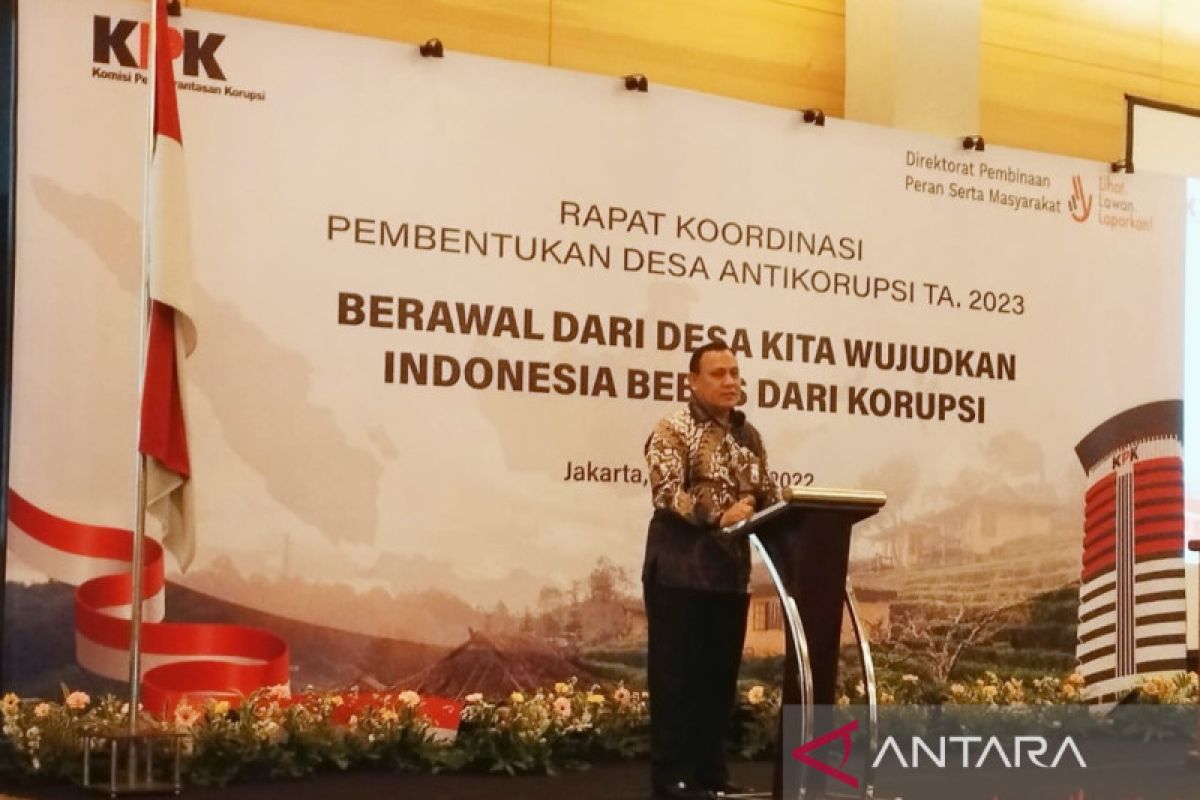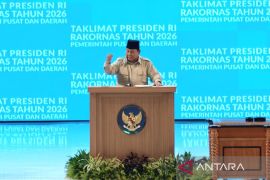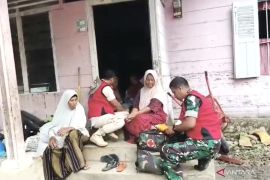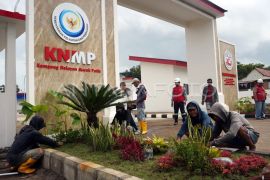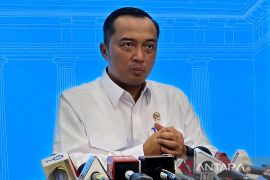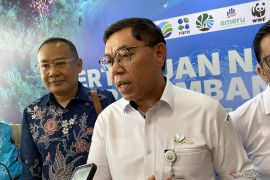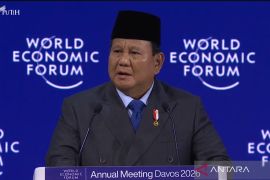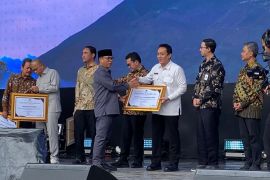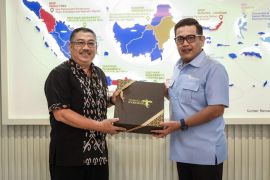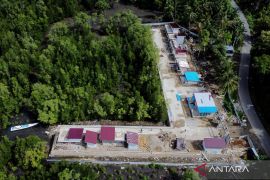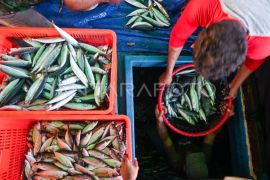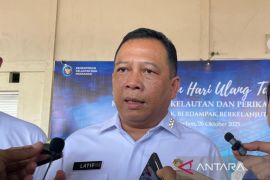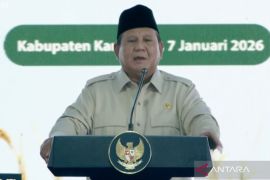To carry out its task of eradicating corruption, the commission has implemented three strategies, namely education, prevention, and enforcement.
The KPK is implementing the three strategies simultaneously so that corruption eradication can run effectively with the joint collaboration of various stakeholders, such as law enforcement officials, ministries, agencies, regional governments, state-owned enterprises (SOEs), regional-owned enterprises (BUMD), and all elements of the community.
Under the education strategy, the KPK is inviting the public to take part in efforts to eradicate corruption.
There are several efforts that people can make to participate in corruption eradication, including ensuring that they and their families do not indulge in corruption, acting as anti-corruption mentors and helping spread the values of integrity in the community, and reporting or providing information on any corruption they see around them or come to know of.
The Directorate of Community Participation of the KPK is also encouraging broad community initiatives promoting active participation in eradicating corruption efforts. One of them is the anti-corruption village establishment program.
Related news: KPK leadership ready to rescue Indonesia from corruption: Bahuri
Goals of anti-corruption villages
The KPK’s goals for establishing anti-corruption villages are promoting the importance of building integrity and anti-corruption values in village governments and communities, improving the governance of villages, and boosting the understanding and the role of village communities in efforts to prevent and eradicate corruption.
The anti-corruption villages program was launched in December 2021 with Panggungharjo village in Bantul district, Yogyakarta, being chosen for the program's pilot project.
Then, in 2022, the program continued with another ten selected pilot villages, namely, Kamang Hilla village (West Sumatra), Hanura village (Lampung), Mungguk village (West Kalimantan), Cibiru Wetan village (West Java), Banyubiru village (Central Java), Sukojati village (East Java), Kutuh village (Bali), Kumbang village (West Nusa Tenggara), Pakatto village (South Sulawesi), and Detusoko village (East Nusa Tenggara).
The selection of the ten villages was started in early February 2022 and involved a total of four stages. The first stage was the observation stage to examine the readiness of the villages to pilot the anti-corruption villages program. The next stage involved the promotion of the anti-corruption concept, with village communities provided education and understanding regarding efforts and steps that can be taken to fulfill the indicators of anti-corruption villages.
In the third stage, the villages were inspected by the KPK, the Ministry of Villages, Disadvantaged Regions, and Transmigration, the Ministry of Finance, the Ministry of Home Affairs, consultants, and several observers. The fourth stage involving the inauguration of the selected anti-corruption villages will take place in November 2022.
Meanwhile, for establishing anti-corruption villages in 2023, the KPK held a coordination meeting in Jakarta last week, which was attended by regional secretaries, inspectors, and the heads of village community empowerment offices of 22 provinces that will propose pilot anti-corruption villages in 2023.
At the meeting themed "Start From Our Villages to Make Indonesia Free From Corruption," participants were given initial briefing materials on anti-corruption village empowerment, village financial management, and anti-corruption village indicators and assessment methods.
The coordination meeting marked the beginning of a series of activities to establish anti-corruption villages in 2023.
Through the coordination meeting, the KPK aimed to share views with local governments in provinces and districts from where pilot anti-corruption villages will be chosen. For instance, the need for quick and appropriate steps to improve several aspects in order to eradicate poverty.
Related news: Central Java asks village heads to help prevent corruption
Reasons for establishment
Head of the KPK, Firli Bahuri, said that one of the reasons for the establishment of anti-corruption villages is that corruption has spread to the village level. The KPK's data has shown that in the period from 2012 to 2021, as many as 601 corruption cases related to village funds and involving 686 village heads were detected.
As per the commission’s records, from 2015 to 2022, a total of Rp470 trillion in village funds were provided by the central government to support the growth of villages, increase their welfare, eradicate poverty, and improve the economy of village communities.
However, so far, according to data, around 12.29 percent of village communities are still trapped in poverty.
Bahuri said that the knowledge and system governance of villages that are not good had opened chances for corruption and, as a result, led to the poverty rate remaining high. As a result, village development was also hampered, and the community did not get the benefits from village funds.
Meanwhile, deputy for community education and participation at the KPK, Wawan Wardiana, noted that there are several challenges to village development, such as low participation of the village community in monitoring village budgets (APBDes), development, and planning.
Other challenges include the lack of forums for conveying opinions or complaints and lack of understanding among village officials regarding graft and conflicts of interest. Yet another challenge is the weakening of local culture and customary laws in villages.
Villages have a crucial role in realizing Indonesia as a corruption-free country. The establishment of anti-corruption villages is expected to build an anti-corruption culture starting from the village communities, then to the governments, from lower to higher levels.
Related news: Support KPK action to root out corruption in Supreme Court: MPR
Related news: Corrupt bureaucracy hinders performance of public services: Mahfud
Editor: Suharto
Copyright © ANTARA 2022
